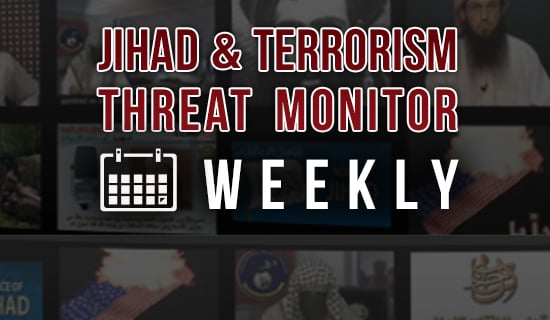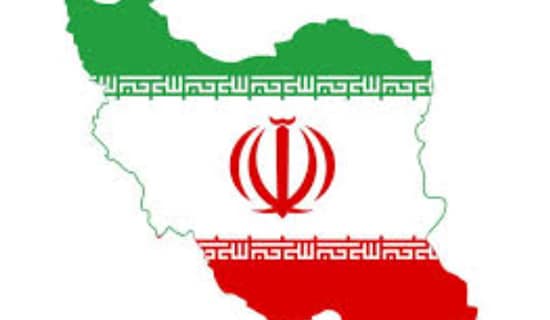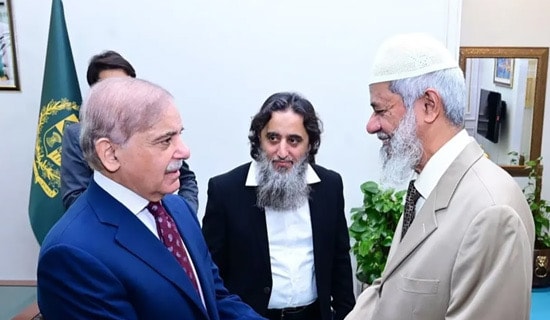The August 2, 2010 rocket attack on Eilat and Aqaba, carried out from the Sinai Peninsula, rekindled Egypt's anger at Iran and the Hamas movement. The Egyptian press stated that the firing of the rockets from Egyptian territory by Hamas or by organizations cooperating with it[1] constituted an infringement on Egyptian sovereignty and the crossing of a red line. Some government papers even called to punish Hamas and sever ties with it.
Anger was also directed at Iran. The Egyptian position is that Iran is employing local proxies, such as Hamas, to escalate violence in various conflict zones in the Middle East, with the aim of using its influence as leverage in its maneuvers vis-à-vis the West – especially since the increase of international pressure on it over its nuclear dossier.[2] According to the Egyptian government press, Iran is using Hamas to sabotage the inter-Palestinian reconciliation efforts, as well as the efforts to renew the Palestinian-Israeli negotiations.
Two days after the rocket attack, the International Center for Future and Strategic Studies in Cairo held a conference on the issue of a nuclear Iran and its possible impact on the region, at which harsh accusations were made against this country. Dr. Ibrahim Nawar, former political affairs officer with the United Nations Assistance Mission for Iraq, assessed that it would be a historic and strategic mistake to view the Iranian nuclear capabilities as a solution to the Palestinian problem, because an Iranian nuclear weapon means that millions of innocent people throughout the Middle East would become victims.[3] The center's executive director, 'Adel Suleiman, assessed that Iran would be able to manufacture a bomb by 2011, but would use it only for deterrence purposes, and in order to increase its involvement in the Arab region and build up the military capabilities of Hamas and Hizbullah.[4] Dr. Mahmoud Barakat, former head of the Arab Nuclear Agency, said at the conference that Iran already possessed three nuclear bombs, purchased in 1991 from Kazakhstan at a cost of $50 million each, with the consent of the Kazakhi president.
Iran, for its part, has also been directing accusations and insults at Egypt. The daily Jomhouri-ye Eslami, for example, called Egyptian President Hosni Mubarak a "Zionist Arab," adding that if he lets his son succeed him as president this would be a "Pharaoh-like" move on his part.[5] At the same time, the head of the Iranian Interest Section in Cairo, Mojtaba Amani, recently told an Egyptian paper that the two countries consult on international matters and that the economic and trade cooperation between them continues. He added that Iran and Egypt disagree on the issue of the so-called peace with Israel, and that their relations would improve once Egypt understood that this peace is useless. He also said that Iran would be willing to help resolve the wheat shortage in Egypt, if Egypt appealed to Iran for assistance, and denied any Iranian involvement in spreading Shi'ism in Egypt.[6]
The following are excerpts from articles published in Al-Ahram, Al-Gumhouriyya and Roz Al-Yousef lambasting Hamas and Iran over the rocket attack.
Al-Gumhouriyya Editor: We Have the Right to Employ an Iron Fist against Hamas
The editor of Al-Gumhouriyya, Shura Council member Muhammad 'Ali Ibrahim, wrote in his weekly column: "The Iranian gang that rules Gaza according to Tehran's instructions [i.e. Hamas] has no Arab agenda whatsoever. Their goals, strategy, and funds are Persian, and that is why Egypt does not interest them in the slightest. Harming our interests and economy and threatening our national security have become a fundamental goal for [Hamas Political Bureau head] Khaled Mash'al and for [Hamas leader in Gaza] Isma'il Haniya and their friends...
"We managed to achieve a document of reconciliation [between Fatah and Hamas] that satisfied all the [Palestinian] factions, who wanted to end the division and strife within the Palestinian ranks. But Hamas refused to sign it, evoking a series of pretexts and excuses, because it did not receive an order from its Iranian patron [to sign the document]. The Palestinians are starving and sleep in tents, and [suffer from] unemployment – but none of that interests the members of Hamas as long as their [own] pockets are full, their [own] beds are comfortable, and their foreign bank accounts are swollen [with money]...
"However, we Egyptians will never allow Hamas to infiltrate our territory in order to fire rockets at Israel on orders from [Hamas'] Iranian masters... Whoever strikes at us, we shall strike back at him with redoubled force. Enough of this disregard for our interests and national security. The attempt to infiltrate Sinai in order to fire rockets at Israel is a blatant attack on Egypt's sovereignty... We have the right to employ an iron fist against these depraved [criminals], who were brought up to perform acts of betrayal and back-stabbing..."[7]
Iran Has Been Occupying Gaza since 2005
In another column, Ibrahim wrote: "Israel has been occupying Gaza since 1967, but Iran has been occupying it since 2005... We [initially] thought that the purpose of the rocket attack had been to embarrass President Mubarak during his meeting with the Israeli president, but [now we realize] that the purpose was [even] more demonic. Iran wants to make things easier for Hizbullah should the international tribunal [for the Al-Hariri assassination] issue, as expected, an indictment implicating some of its members. Iran wants the Arab states to enter into conflicts and confrontations with Israel, and wants the region to keep on burning, and it does not matter if [the price is] that a certain country [i.e. Egypt] loses its sovereignty to some degree. The Islamic militias operating in the Arab homeland have leased this homeland to the Iranian Mullahs... As every Arab child understands, Iran's plan is to keep the Arab world occupied with the Palestinian problem forever...
"But there are limits to our patience. We will not sit quietly while [certain elements] infiltrate our land and make alliances with terror organizations like Al-Qaeda and their ilk in order to threaten our security. I think that [eventually] Egypt will sever its ties with Hamas for good and stop talking [with it] about [inter-Palestinian] reconciliation or about alleviating or lifting the siege [on Gaza]..."[8]
In a third article Ibrahim attacked Hamas yet again: "Iran's agents in Gaza and Lebanon utter slogans of resistance but do not implement them. This is resistance under long-range influence, resistance that brings ruin upon its peoples, resistance without consideration for cost and benefit, resistance aimed at killing civilians rather than the enemies... Hamas in Gaza, Hizbullah in Lebanon, the Houthis in Yemen, and Jaysh Al-Mahdi in Iraq all espouse extremist ideologies inspired by Iranian Shi'ism or by the Muslim Brotherhood in Egypt... Killing is the fundamental idea that dominates the mind of an extremist. He burns with a desire to transform people into lifeless corpses, but believes that this desire must be concealed behind religious slogans of resistance..."[9]
Al-Ahram Editor: The Rocket Attack Will Mark a Turning Point in Egypt's Attitude towards Hamas
In his weekly article, the editor of the Egyptian government daily Al-Ahram, Osama Saraya, attacked Iran's policy of spreading its influence in the Arab world: "What is happening in Gaza is nothing less than a defeat. Hamas has taken over the Palestinians, deprived them of freedom, placed them under siege... It has [also] kept them, and is still keeping them, from performing the pilgrimage [to Mecca] and visiting the Ka'ba. Hamas is neither carrying out resistance nor holding negotiations or anything [else]. It has left special gangs [in Gaza] to plunder the town and seize the donations given to the Palestinians. It is opposing the rebuilding of Gaza, and is actually supporting the Israeli siege, because it suits its interests...
"Hamas is also standing in the way of Palestinian national unity, because it knows the Palestinian public has discovered its great fraud. What Hamas does not realize, and must internalize, is that the Palestinian state has not yet been established. There is only a Palestinian Authority, [which exists] under occupation. This obligates Hamas to use a different language and employ different political methods... The most crucial [step] in this direction is to prevent outsiders from interfering in Palestinian affairs... Iran's interventions are all reprehensible, and are aimed at holding the Palestinian cause hostage until [the matter of Iran's] nuclear dossier is resolved with the West and the U.S. Delaying the Palestinian reconciliation and [the achievement] of Palestinian unity runs counter to all Palestinian interests, and may affect the future of the Palestinian state.
"[Their] new game of allowing outside groups to fire missiles from Egyptian territory at Eilat and Aqaba is not fooling anyone. It is a great crime, which will necessarily cause Egypt to change its way of dealing with Hamas in Gaza. Until now, Egypt has treated Hamas as a Palestinian faction that represents the Palestinian liberation movement as a whole, and which has the right to employ religion in rallying the Palestinians to [the cause of] establishing a state. But Hamas has no right to embroil Egypt in a military confrontation with Israel, to betray principles or to overstep boundaries that were laid out and agreed upon in advance... Hamas has embarked... upon a dangerous path, whose impact on the future relations between Egypt and the Palestinians is even more dangerous. Hamas and its allies must know that they have violated the ground rules and the agree-upon principles, and that the moment of reckoning has come, and it will be harsh.
"The situation in the region is unfortunate [because] Iran is losing its head, pressured [both] by domestic [problems] and by the international sanctions, whose impact cannot be denied. The situation in Iran [results] in crises in the neighboring countries, because Iran sees Palestine, Lebanon, and Iraq as its first line of defense in its confrontation with the West and the U.S...
"Operations like these cannot be classified as resistance. They are political moves designed to create tension between Egypt and Israel and drag them into a confrontation, and thus to convey a message of ongoing opposition to negotiations, to show that [Hamas] exists, and to gain recognition or involvement – especially since lately the international community has been ignoring [Hamas]..."[10]
When Iran Is Pressured by the West, It Increases Its Pressure on Its Arab Proxies
In another article, Saraya wrote: "When the Iranians [find themselves] hurrying to succumb to the Americans and the West, and when the pressure of the international community upon them increases and the international sanctions [begin to] impact their nuclear program, they increase their pressure on their Arab agents, and take over the Palestinian problem... All the forces active in our Arab political arena must wake up and [start] acting diligently to stop the Iranian aggression [that is threatening] our interests. [They must] stop [the policy of] hitching the Islamic faith to the political [wagon] and wreaking havoc in the internal [Arab] arena... Throughout their history, the Arabs refrained from placing their problems in the hands of others... To all those who spoke with us – whether from Gaza, the West Bank, Lebanon, Iraq, or Yemen – and [expressed] fear for their future and for the future of Arabness, identity and religion I say openly: We are with you and will not abandon you to the Iranian octopus in Muslim garb..."[11]
Roz Al-Yousef Editor: Hamas – A Strategic Danger to Egypt's Interests
Roz Al-Yousef editor 'Abdallah Kamal wrote: 'Hamas is one of the causes of the Palestinian problem. In my assessment, it is the most prominent factor – after the occupation – endangering the Palestinian interests. Even if we have no choice but to deal with this illegitimate group [called] Hamas, because it rules Gaza and holds its residents by the throat, we must recognize with complete clarity that Hamas poses a strategic threat to Egypt's interests, and that its presence on [our] border is at odds with Egypt's stability and constitutes a real and ongoing threat to its national security.
"This analysis and this conclusion are not based only on the rockets fired at Israel and Jordan from Egypt's territory, but also on many other considerations. Ideologically, Hamas advocates a notion of a religious state [whose characteristics] stand in contradiction to those of the civilian state of Egypt... [Moreover,] Hamas is linked to a web of interests and parties that are openly hostile to Egypt, on the Arab and regional level. The chief of these alliances is its close [alliance] with Iran, [reflected in] funding, training, political ties and coordination of political goals and moves. Despite being Sunni, [Hamas] is perfectly willing to realize the Shi'ite religious goals and the Persian national goals, especially when they clash with Egypt's interests and undermine them, even if it is just by harming [Egypt's] image in the media and the political [arena]...
"Hamas does not make its own decisions, but is wholly [controlled] by others. It is a tool for others to use and an agent performing missions for those who are paying it. These characteristics and others call into question Hamas' legitimacy and the degree to which it represents the honest Palestinian struggle..."[12]
[1] An Egyptian security source said that Palestinian factions were behind the attack, while the independent Egyptian daily Al-Yawm Al-Sabi' stated specifically that Hamas was behind it. Al-Ahram, Al-Yawm Al-Sabi' (Egypt), August 4, 2010.
[2] See MEMRI Special Dispatch No. 2903, "Egyptian Foreign Minister: Iran Is Holding the Region Hostage," April 12, 2010, Egyptian Foreign Minister: Iran Is Holding the Region Hostage; MEMRI Special Dispatch No. 2708, "Egypt Warns about Iran's Growing Interference in Arab World," December 18, 2009, Egypt Warns about Iran's Growing Interference in Arab World; MEMRI Special Dispatch No. 2478, "Egyptian Weekly 'Roz Al-Yousef' Publishes Articles Harshly Criticizing Iranian Regime," August 12, 2009, Egyptian Weekly 'Roz Al-Yousef' Publishes Articles Harshly Criticizing Iranian Regime.
[3] Roz Al-Yousef (Egypt), August 5, 2010. Al-Masri Al-Yawm (Egypt), August 6, 2010.
[4] Al-Arab (Qatar), August 5, 2010.
[5] Jomhouri-ye Eslami (Iran), August 10, 2010.
[6] Al-Yawm Al-Sabi' (Egypt), August 17, 2010. The director of foreign trade in the Ministry of Foreign Trade and Industry, Abu Al-Qamsan, said in response that Egypt was not opposed to importing wheat from Iran of from any other country, and that his office was examining the possibilities. Al-Yawm Al-Sabi' (Egypt), August 18, 2010.
[7] Al-Gumhouriyya (Egypt), August 5, 2010.
[8] Al-Gumhouriyya (Egypt), August 7, 2010.
[9] Al-Gumhouriyya (Egypt), August 8, 2010.
[10] Al-Ahram (Egypt), August 6, 2010.
[11] Al-Ahram (Egypt), July 30, 2010.
[12] Roz Al-Yousef (Egypt), August 8, 2010.




